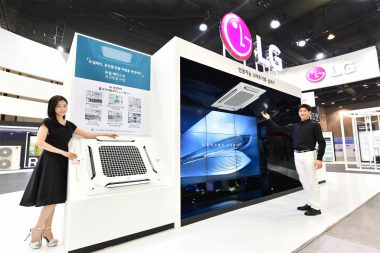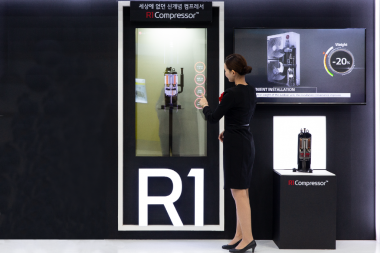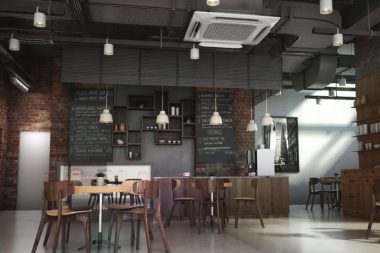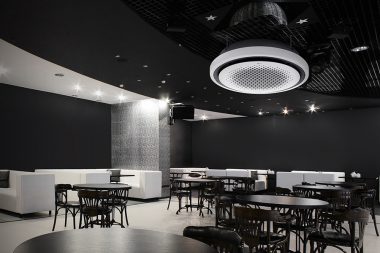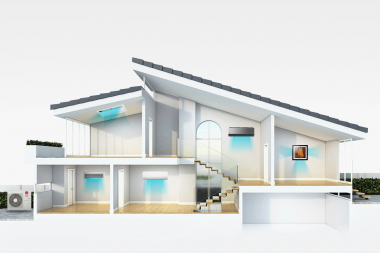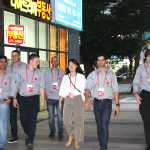Diners’ experiences at a restaurant are the foundation of the eatery’s success. While there are a complex set of factors that go into creating the perfect dining experience, the taste, and texture of the food, as well as the comfort of the patrons, are vital to bringing people back to a restaurant again and again. Keeping the perfect balance of temperature between a kitchen and a dining room can be tricky but it pays off in the end.
Everyone from a novice home cook to a Michelin-starred chef understands the importance of ingredients and recipes, and when it comes to baking, it pays to be a perfectionist. Baking is a science and an art, so maintaining all aspects of a recipe is essential to serving up everything from a simple dinner roll to an elaborate beef wellington. Many other recipes and cooking methods also call for ingredients such as meat, eggs, butter, milk or other special ingredients to be used at room temperature and there is a science to it. Room temperature is also an important factor in the dining room as well. A diner’s experience in the dining room has a lasting impact on their overall impression a restaurant and keeping diners shivering cold or boiling hot will likely make their first visit their last. Room temperature plays a vital role in the dining experience in the kitchen as well as the dining room and even the Michelin Guide acknowledges the importance of the overall experience when dining in a restaurant.
We had the opportunity to hear from a head chef at a Michelin Starred restaurant and an expert baker. Let’s hear from the experts about the importance of temperature in cooking, baking, and dining.
Jason Oh, Head Chef of DOSA by Back Seung-Wook
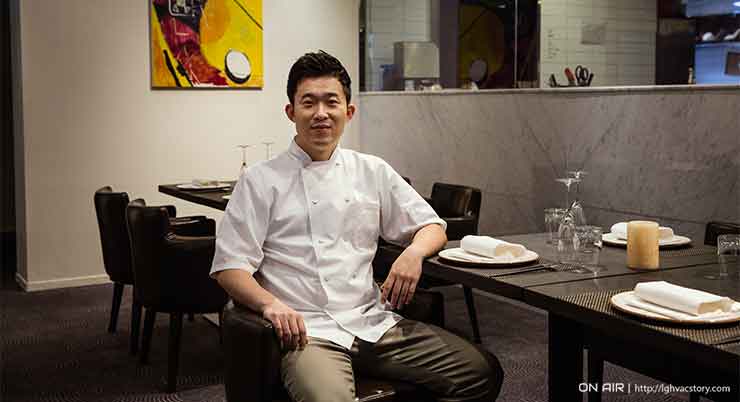
Even when using the same recipe, the ingredients make all the difference in the outcome of a dish. For example, chili peppers picked in the summer tend to be hotter and potatoes grown all year round have a different flavor depending on the season. At DOSA by Back Seoung-Wook, we serve a dish with eggplant. In a country like Korea with 4 distinct seasons, even when the same eggplant is used in a recipe, the final result of the dish is different as there is a difference in the moisture of eggplant farmed in the summer and eggplant farmed in the winter. In this respect, the temperature has a profound effect on ingredients. Because of this, it important to keep a kitchen where ingredients are stored and dishes are cooked at a consistent temperature all year round.
Another important factor is humidity. At our restaurant, we use isomalt and agar in molecular gastronomy. Maintaining the optimal humidity in the kitchen is extremely important in molecular gastronomy. Twills that are used as garnish are very sensitive to humidity so you must be very careful when preparing them. Maintaining a constant temperature and humidity when tempering over a marble surface is also important.
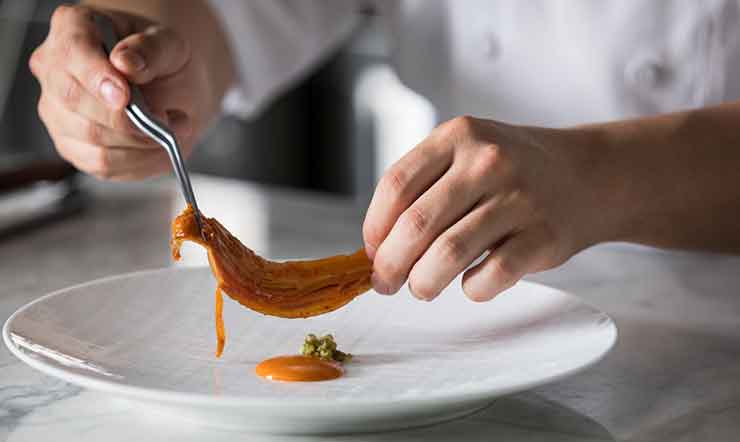
Courtesy of DOSA by Back Seung-Wook
Our restaurant has just recently received a Michelin Star from the Michelin Guide here in Seoul. Everything from the quality of the ingredients to the originality of the chef is taken into consideration. When evaluating the service of a restaurant, Michelin Guide inspectors may even consider factors such as what kind of towels are used in the restrooms or whether towels are replaced properly after a customer uses the restroom. For a fine dining experience, the seats, the cutlery, and comfort of the restaurant are all very important.
We think of our dishes to be pictures painted on a plate. But merely cooking great food will not satisfy customers. No matter how great the food is, if you cannot deliver great service as well, customers will not remember their visit to your restaurant as a good experience. The server must also deliver the dish to the customer with each garnish and sauce precisely the way it was carefully prepared by the chef. Everything from the food and service to the customer receiving the key to their car from the valet must be seamless.
Dosa by Back Seoung-Wook
Website: https://www.dosaseoul.com/
Joel Vial, Owner of Breadshow BTM
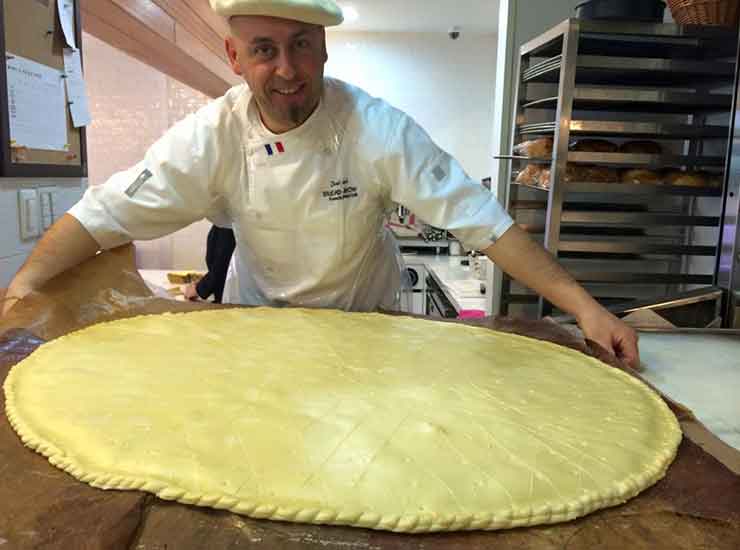
Making bread and making pastry or cakes are two totally different jobs. So they require different things. For baking, it’s important to have a consistent temperature between 20~25 ℃. If the temperature is lower than that, it takes more time to make bread because there is yeast inside. If the temperature is too high, the bread will rise too fast, and the quality of the bread will not be good. We need to slow the fermentation process for bread to develop its rich aroma. We do use a proofer (fermentation machine), but it’s still important to keep a consistent temperature in the kitchen itself when we work with dough. It’s also important that the kitchen is not too dry either. It’s better when it’s a little bit humid. If it is too dry, like in the winter, we have to cover everything and close the doors so that the dough does not become dry on the outside. In the summer, good AC equipment helps to control humidity.
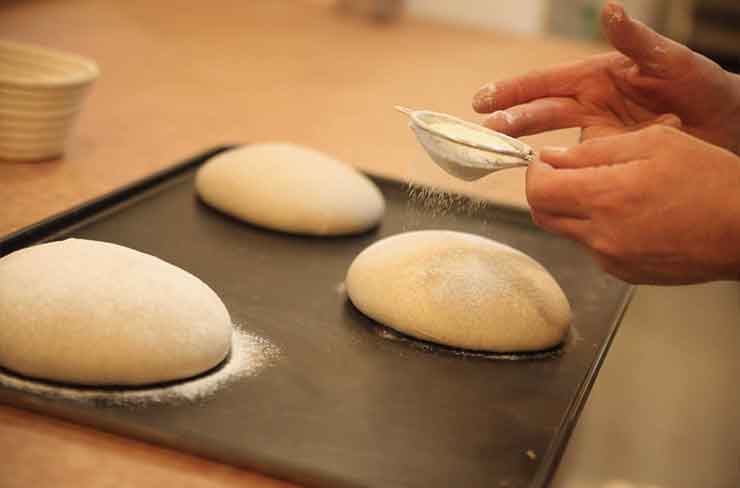
For desserts, it’s better to have cooler temperatures. For example, when working with pastry dough, we need cooler temperatures around 18℃ because it requires butter. If the temperature is too hot, the dough will be too soft and the butter will spill out. So in this case, we try to keep the kitchen a bit cooler and this is the same when we work with chocolate too. Drier air is also ideal. It is not something that many people understand, but keeping the right temperature and humidity is important in producing results that I am proud to sell in my store.
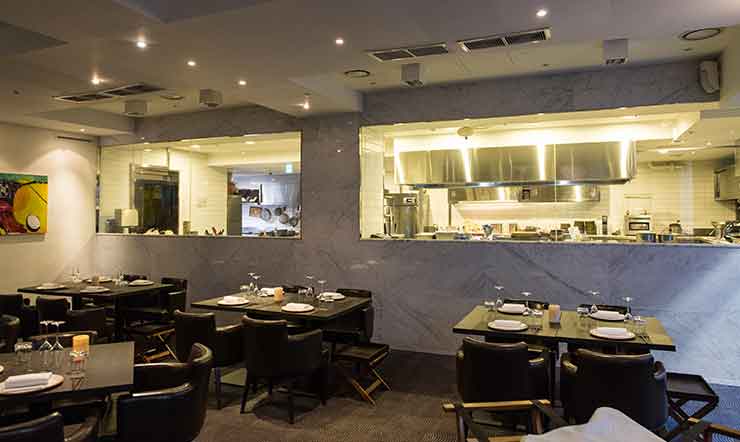
LG HVAC solution at DOSA by Back Seung-Wook
This balancing act can be easily managed with the intuitive technology in LG Air Solution HVAC control systems. Both Jason Oh and Joel Vial use LG HVAC solutions in their respective restaurants to ensure that their customers have the perfect experience. Fully integrated control offers restaurant managers precise control of the temperature in each area of a restaurant, which makes it possible to maintain a hot kitchen at a comfortable room temperature while simultaneously keeping diners enjoying their experience in the dining room. LG AHU (Air Handling Unit) CO2 sensors can also detect air quality throughout a restaurant to provide fresh air by eliminating high CO2 concentrations. Chefs can rest assured that their food will be of the highest quality while restaurant managers can ensure a comfortable dining experience for customers with LG Air Solution.





